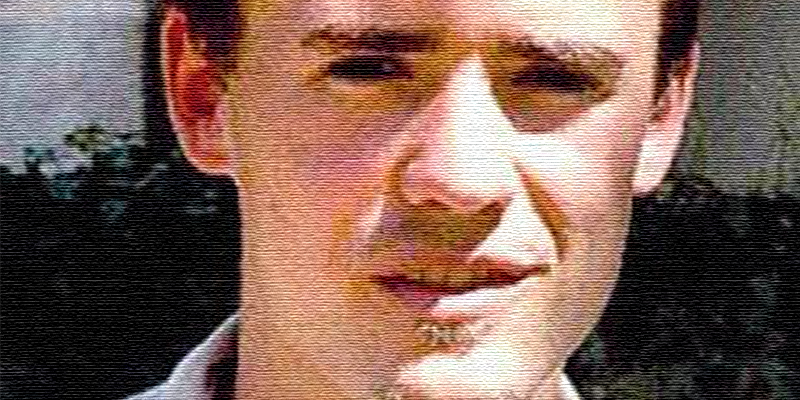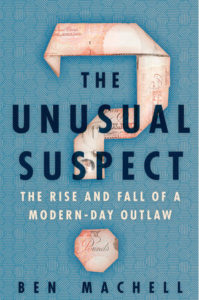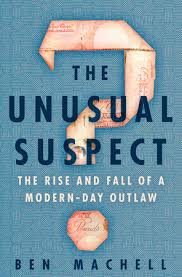The name of the young man in the interview room at Vermont’s Southern State Correctional Facility was Stephen George Dennis Jackley. He was twenty-two years old and came from a small town called Sidmouth on the South Devon coast. He was a geography student at the University of Worcester. As a rule, geography students from Devon do not tend to find themselves consigned to the Hole. Or known to Interpol. Or being interrogated by a pair of U.S. federal agents. Or, for that matter, being the subject of a multiagency, multinational criminal investigation. But Stephen Jackley was not like most geography students.
“I was told that he had very sophisticated abilities, and that escape should be at the forefront of my mind when dealing with him,” says SSCF’s head of security, a large, steady man named Mark Potanas. “He was considered such an escape risk. There were very few prisoners we worried about to the extent that we worried about him. He was basically on lockdown.”
This was not the first time Special Agent Scott Murray had encountered Stephen. He had interviewed him some months earlier, on the afternoon of his arrest in May 2008. Since then, Murray had been liaising with British detectives on a case. “I do a lot that involve firearms and explosives,” he says. “Every case is different, but this one is memorable. I guess that’s the best way to put it.”
Stephen Jackley had, like many young people, looked around and concluded that the world was not fair. And like many young people, he’d wanted to make a difference. It’s just that, rather than going on protest marches, involving himself in politics, or running sponsored marathons, Stephen ended up robbing banks. Over a seven-month period in 2007 and 2008, he struck repeatedly and successfully. “You could not expect an educated person in his early twenties to commit a series of armed robberies across the country and internationally,” said one British detective, speaking to the press after his eventual capture. “It has been a complex and protracted investigation.”
Special Agent Murray had spent enough time with the young man in front of him to judge that he was both intelligent and about as far from a typical bank robber as you could get. But there was something about him that he still struggled to understand, a side of his character that remained elusive and was hard to associate with the high-security surroundings they both now shared. He was calm, quiet, incongruous. Murray frowned. “I never felt I got a full scope of who he is.”
One thing that struck everybody, though, was Stephen’s unusual habit of writing everything down. As British and American investigators dug into the evidence surrounding his case, it had become clear that Stephen had what seemed a compulsive need to commit his thoughts and deeds to paper. Everything he planned, he wrote down. Everything he did, he reflected on in his diaries—page after page after page filled in his careful, steady handwriting. “He was methodical in the way he wanted to write down what he wanted to do in the future and what he had done in the past,” says Murray.
Back in the interview room at SSCF, the austere gray-haired agent explained to Stephen what the FBI was and what they did. In a deep, measured voice he said that the agency was helping British police with their investigation into his crimes. He produced a pile of photocopied papers covered in writing, numbers, dates, and strange codes. He sifted through them slowly and deliberately, found what he was looking for, and slid it across the table. It was a photocopy of a British banknote with the letters “RH” scrawled on it. The FBI man glanced at Murray. Could Stephen tell them, he asked, what it means? Stephen glanced at it. And he nodded.
What follows is an extract of “Desperate Times,” an essay written by Stephen Jackley from a British prison and posted to several newspapers and one Court of Appeal judge in 2013.
Desperate Times
The world is spinning on the axis of oblivion. Humanity stands on the brink of massive change. Within just twenty years, scientists predict the depletion of fish stocks and widespread ecological disasters. Within fifty years it’s likely the world population will reach 10 billion people, with subsequent increases in carbon emissions and environmental pressures. Already species are going extinct by the day, ecosystems are being extinguished, and entire habitats are vanishing. Pollution, global warming and overpopulation is pushing the planet beyond its capacity to support life.
The fate of our world is the concern of everyone, yet like all dependable things it is often taken for granted. As different as we are, each of us is a passenger on the same great vessel, members of a species responsible for so much destruction. Despite this, humanity as a whole cannot be blamed. From affluent western nations to Chinese towns, people are destroying the planet not for survival but to support a system that few even realise exists.
Eighty-three percent of the world economy is controlled by the richest 1/5th of the population. Thirty-five of the biggest economic actors are companies and just 15 are governments. It is reasonable to conclude that the world is being run by and for a transnational capitalist class—a corporate oligarchy that hides behind both democracies and dictatorships. Every government is really a pawn to economic forces, as determined by the elite super-rich minority. Blinded by power and greed, this minority are not really concerned with impending ecological crisis. Perhaps they think they can escape it, just as they’ve escaped the economic hardships others have had to endure. Or perhaps they believe it will come anyway—that there’s no avoiding ‘the inevitable’—and therefore the best option is to enjoy life to the full. Either way, whether by intention or inheritance, the global oligarchy is a primary architect of the world’s devastation.
People are starting to realise that the Earth is a giant Easter Island, and that it can only endure so much destruction before being irreversibly destroyed. Slow, tentative steps are being made, but they are not enough. It would take a drastic shift in behaviour to avoid the predictions of scientists. And a change in behaviour requires a change in thinking.
Only comparatively recently has humanity realised that the planet is a delicately-balanced, interconnected system; that its resources and biological diversity can easily be extinguished; that every ecosystem is a complex web of mutually dependent species. Rather than seeing life as a biological arms race whereby every species competes with another, we are beginning to understand that it is more like a symbiotic relationship, where all species have their special roles in sustaining each other. Humans rely on this symbiosis: from the mitochondrion in every one of our cells (a distinct lifeform that gives us energy) and the bacteria in our digestive system to the food we consume and the oxygen-nitrogen air we inhale. Our very existence is because of other species. Despite this, humanity persists in a relentless path of destruction and blind competition—all in the name of ‘progress’.
It’s a misleading word, this ‘progress’. It’s often used interchangeably, if not equivalently, as ‘growth’. In today’s society it tends to mean only one thing: more. More houses, more roads, more jobs . . . more money. And meanwhile, as these are built and hoarded, the thing on which everything rests is being destroyed. The world is not infinite; its resources are not limitless. If humanity is to survive it must sacrifice the desire for ‘progress’ and replace it with sustainability. Each time ‘progress’ or ‘growth’ is promised, two questions need to be asked: for whom and for how long?
‘The economy’ is another misleading term. In the present socio-economic system, an economy is measured not by the happiness of a population or the ecological richness of an environment, but rather as the flow and accumulation of an esoteric substance known as capital. Possibly this is the greatest con trick of all. Few realise that nearly all money is created more or less from thin air; it is a representation which only bares a vague resemblance to reality. For example, over 90% of the UK’s money supply is created by commercial banks from interest-bearing loans—a scenario echoed across the world.
Increasing food prices, taxation and inflation means more pressure for those at the bottom of the pyramid. A parallel could easily be made with feudal Britain, where rich lords increased taxes on the population in order to maintain their luxurious lifestyle. The cost of upper-class greed and folly would always be enacted on the lower class. It became apparent that I could fulfil the role of a hero, following in the footsteps of a man who had lived in similar times—a legend who had broken the law in order to bring wealth and justice to the people.
I could become a modern day Robin Hood.
***



















